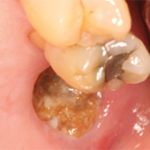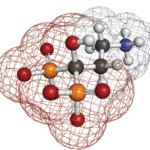Safety Warnings and Label Changes
A possible market withdrawal may be imminent for propoxyphene-containing products. In December 2008, the American Society of Health-Systems Pharmacists (ASHP) sent a petition to the Food and Drug Administration (FDA) asking for the removal of propoxyphene-containing products from the US market due to poor effectiveness and safety profiles.1 On March 2, 2009, the ASHP reported a close vote of 14 to 12 in favor of the removal of propoxyphene-containing products from the US market based on testimony from a joint meeting of the FDA’s Drug Safety and Risk Management and Anesthetic and Life Support Drugs Advisory Committees on January 30.2 Issues included are its relationship to drug-related deaths, limited analgesic usefulness, and unfavorable risk-to-benefit ratio. At press time, a final decision had not been made.
Wearing medicated transdermal patches while undergoing magnetic resonance imaging (MRI) scans can cause skin burns on the direct patch area.3 Some transdermal patches contain metallic backing or other layers that can overheat during an MRI scan. Patches have many indications including anti-emetics (e.g., granisetron), antidepressants (e.g., selegiline), hormone replacement (e.g., estrogen, testosterone), analgesia (e.g., fentanyl), and smoking cessation (e.g., nicotine). The FDA is evaluating patch contents and labeling to ensure that patients receive this warning about burns. Until the FDA makes a final decision, healthcare providers are asked to warn patients wearing a medicated patch to remove and dispose of it prior to undergoing an MRI. After the scan, the patch should be replaced. When filling out the health history questionnaire at the time of an MRI, patients should include information about medicated transdermal patches.4
New Approvals
- Febuxostat (Uloric) was FDA approved for treating hyperuricemia in gout patients.12 Febuxostat is a potent, non-purine, selective, xanthine oxidase inhibitor, structurally different from other xanthine oxidase inhibitors. Availability will be in 40- and 80-mg tablets (once-daily dosing). It is not recommended for patients with asymptomatic hyperuricemia, and does not require dosage adjustment for patients with mild to moderate hepatic or renal impairment.
- Hylan G-F 20 (Synvisc-One) has been FDA approved as a single, intra-articular injection viscosupplement for treating knee osteoarthritis.13
- Morphine sulfate extended-release capsules (Avinza) are now also available in 45- and 75-mg dosage strengths. This is in addition to the 30-, 60-, 90-, and 120-mg capsules already available. Avinza is FDA approved for treating moderate to severe chronic pain in patients needing around-the-clock analgesia.14
- Topical coal tar foam 2% (Scytera) has been FDA approved for treating chronic psoriasis. It contains an odor neutralizer and spreads easily.15
Genentech is voluntarily withdrawing efalizumab (Raptiva), a medication for treatment of psoriasis, from the U.S. market due to a potential risk to patients of developing progressive multifocal leukoencephalopathy (PML).5 The phased withdrawal will run through June 8, 2009, at which time the drug will no longer be available in the United States. Physicians are being asked not to start any new patients on efalizumab and to discuss alternate therapies with their patients currently taking efalizumab.

